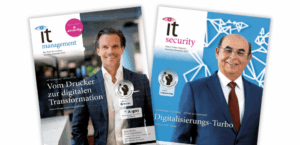Due to the high shortage of skilled workers in the IT sector, there are also opportunities for qualified specialists from abroad on the German labour market. In SAP consulting, for example, experts with in-depth technological knowledge in both implementation and development are desperately sought after. The following is a guide for foreign SAP professionals on how to successfully enter the labour market.
Which specialists have the best opportunities
Younger applicants with two to four years of professional experience have particularly good entry opportunities. Employers are looking for experienced technology experts for all SAP topics with solid expertise in both development and SAP consulting, who can use their implementation skills to independently manage one or more SAP components.
In addition to the appropriate technical qualifications, one of the most important recruitment criteria for most German employers in the SAP sector remains good to very good German language skills at language level B2 or ideally C1 according to the Common European Framework of Reference for Languages. However, this is less about having a certificate, as this can be quite expensive, and more about actual language skills in everyday working life. Qualified SAP professionals who do not yet have any knowledge of German should take language courses parallel to the application process in order to raise their language level as much as possible.
For students who are already thinking about working in Germany later on, we recommend, for example, two semesters abroad at a German university, possibly with an accompanying language course. SAP specialists who have already completed a Bachelor’s degree in their home country can also consider completing a Master’s programme in Germany. It is also worth checking which universities in your home country offer suitable degree programmes in German.
Starting the application process
SAP specialists with little or no knowledge of German in particular should choose to apply directly to companies. This is because the route via a recruitment consultancy is rarely successful in this case. In the worst case scenario, the applicant profile will be ‘burnt’ on the market as the candidate remains unemployed for too long.
Specialists should therefore systematically and continuously monitor job adverts on company websites and job portals and apply directly to the respective user companies and SAP consulting firms if they have the right professional qualifications. Even if a job advertisement requires knowledge of German, it is worth applying if the SAP specialist fulfils the professional qualifications. However, the relevant language level should be truthfully stated in the application documents. It is important to remain persistent, as the job search can take some time, from months to years, depending on the applicant’s German language skills.
Application documents and job interview
For the application documents, it is important that SAP specialists prepare two different documents for the respective decision-makers from the HR department and from the specialist department.
For the HR department, applicants need a classic CV that lists all periods of training and employment in reverse chronological order in tabular form. It is important that the exact role title and specialisation, for example ‘SAP BW Consultant’ or ‘Senior Consultant SAP SD’, are always clearly stated. This allows the HR department, which generally does not have in-depth SAP knowledge, to immediately recognise whether the applicant has the necessary qualifications.
Applicants prepare a so-called project list for the specialist department, a speciality for application documents in the SAP area. This is more detailed than the CV and lists all previous SAP activities and projects with all technical and specialist content in reverse chronological order in table form with keywords in indents.
When applicants eventually receive an invitation to an interview, they should inform themselves in detail about the potential employer’s business model and any industry focus beforehand and prepare meaningful questions, for example on specific details about the field of activity of the vacancy. The recruiting process usually begins with a video call or telephone call in which the specialist department first clarifies whether the applicant has the necessary specialist knowledge. If this interview is successful, either a personal interview or another video call follows, depending on the applicant’s location.
Employment contract and visa
If the application is successful, skilled workers apply for a work visa with the signed employment contract at the German embassy in their home country. Depending on the country, this can take anywhere from a week to several months. However, employers take this into account and starting in the new job at a later point of time is generally not a deal breaker. In addition, many employers then provide support in finding accommodation and registering for health and social insurance.
If SAP professionals have worked in Germany for two years or more, the transition to a new position is usually much easier and they can often choose between several attractive contract offers. If SAP professionals are planning a job change, they can also consult a personnel consultancy specialising in SAP. This offers qualified professionals a larger pool of suitable employers and supports them throughout the entire recruitment process, from the application to salary negotiations and the conclusion of the contract.

















